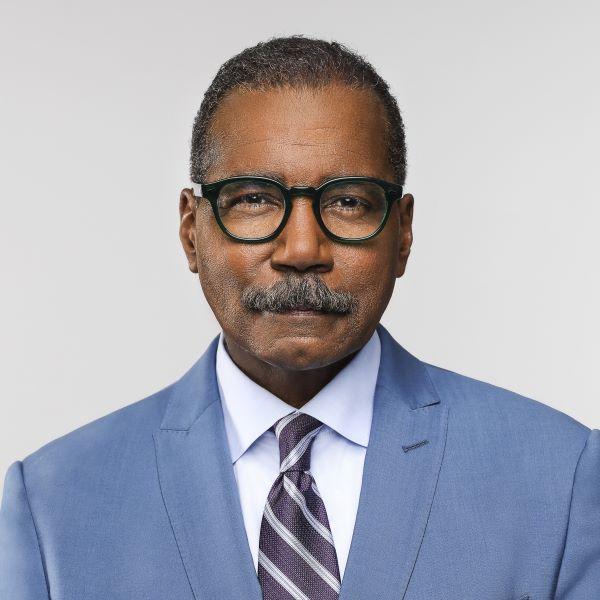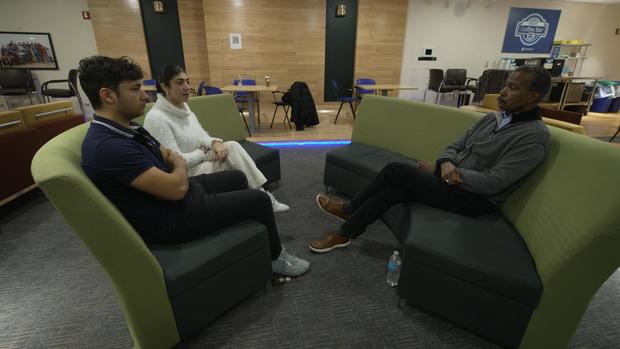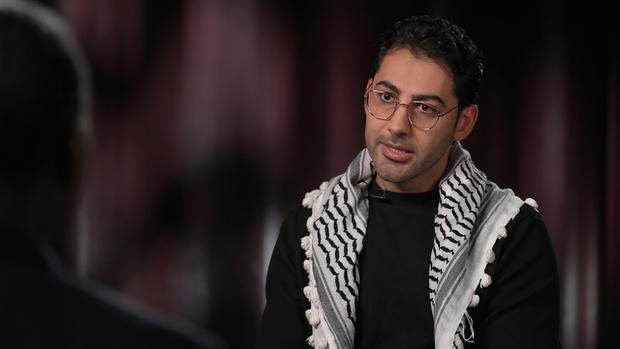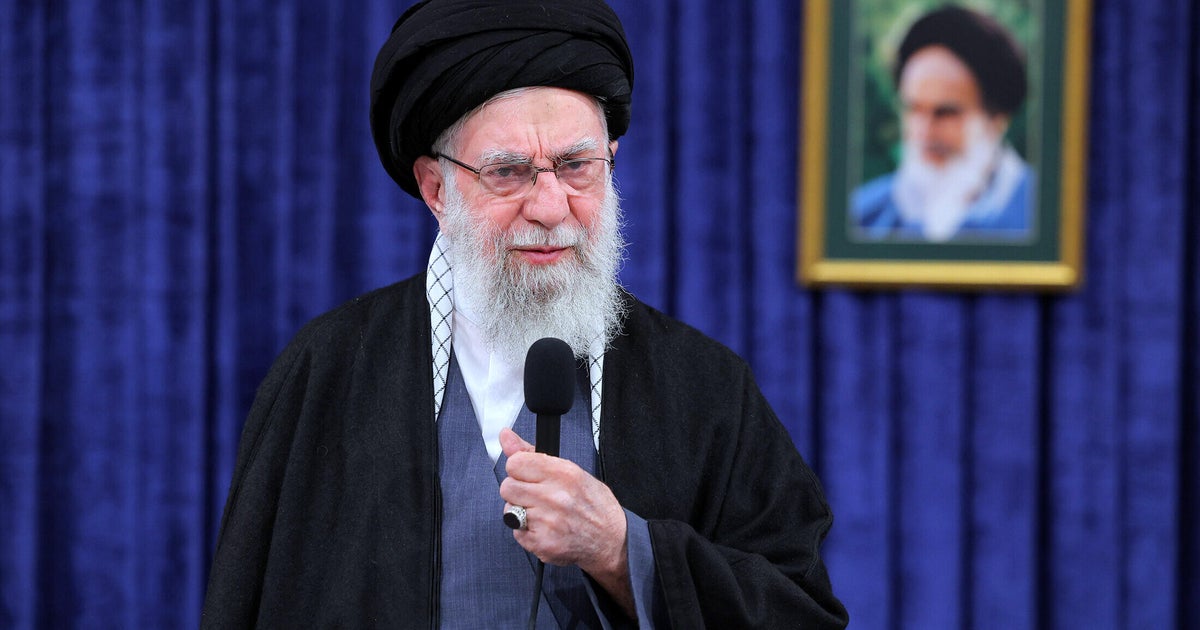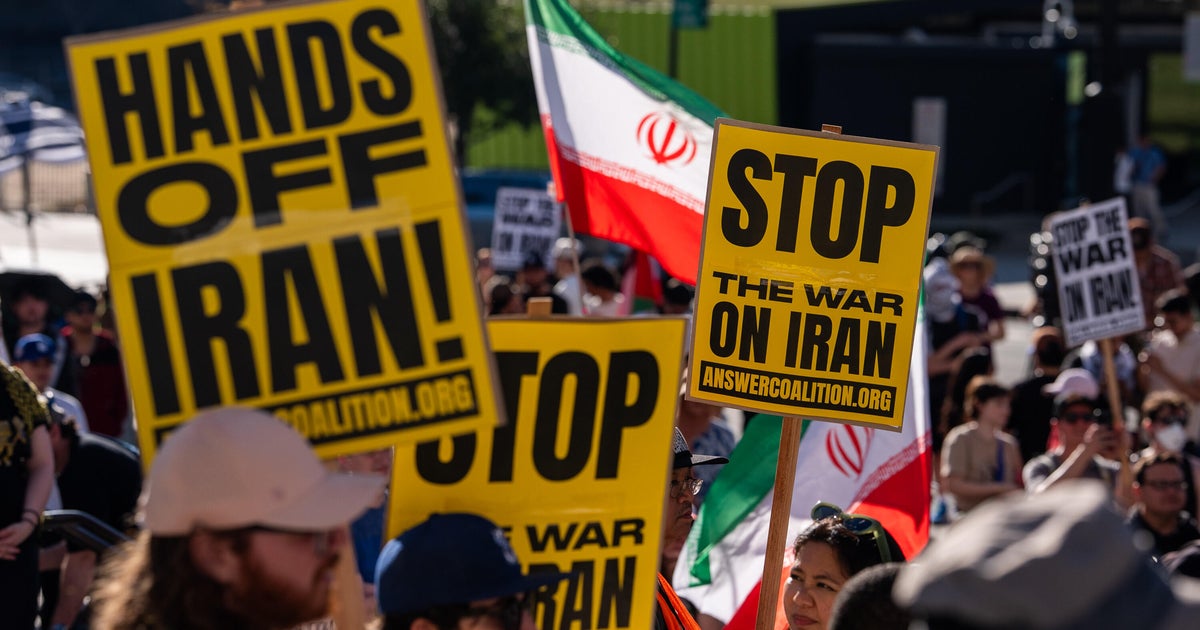"It's tense. It's hostile": Turmoil on college campuses over Israel-Hamas war
Leaders of Students Supporting Israel and Students for Justice in Palestine both feel unsafe on the campus of Columbia University, the site of ongoing heated protests over the Israel-Hamas war.
Tensions over the conflict in the Middle East have boiled over onto campuses in the U.S., leaving colleges across the country dealing with reported antisemitism and Islamophobia. At several institutions, students on both sides are upset over the response from university administrators.
Campus tensions rise after Oct. 7 Hamas attack on Israel
Demonstrators have protested and marched at college campuses across the country in the weeks since Hamas' deadly Oct. 7 attack on Israel, which resulted in roughly 1,200 dead, and an estimated 240 taken hostage in Gaza, according to Israeli officials. Israel's bombardment of Gaza in response has led to more than 15,000 deaths, according to the Hamas-run Gaza Health Ministry.
Amid the conflict, Jewish and Muslim students across the U.S. are confronting an uptick in antisemitism and Islamophobia. On Tuesday, the presidents of Harvard, the University of Pennsylvania and MIT will testify before Congress about antisemitism on college campuses.
Eden Yadegar, the head of Students Supporting Israel at Columbia, said students on all sides of the issue feel unease on campus.
"It's tense. It's hostile," Yadegar said. "There have been days where I've had to walk through not one, but two protests on campus in order to get to my classes."
A fellow student, who asked to be identified only as "David," citing safety concerns, said he was confronted late at night while leaving the library. He said someone repeatedly shouted "f--k the Jews" at him.
Maryam Alwan, one of the leaders of Columbia's chapter of Students for Justice in Palestine, said she's faced repercussions for speaking out publicly.
"There have been a lot of death threats. There have been professors at the school who have been calling us terrorists," Alwan said. "So they close all the gates. They bring hordes of NYPD. And then they make all of the students of color feel unsafe."
She's been avoiding campus. Other pro-Palestinian student protesters have worried about doxxing, the public sharing of their personal information. Students have had their names and faces paraded outside campus on a digital billboard.
Alwan's group, along with student group Jewish Voice for Peace, were suspended from campus through the end of the fall term.
Soon after the suspensions were announced, Mohsen Mahdawi stepped up to lead a diverse and growing coalition of more than 80 campus groups. Mahdawi grew up in a refugee camp in the Israeli-occupied West Bank and is now co-president of Columbia's Palestinian Students Union.
The students on each side seem united by one thing: pain. Many on each side are talking past each other. Mahdawi shared how he's trying to get past that.
"I'm inviting them to come and look at my wounds," Mahdawi said. "The pain that I lived and my people are living is real."
Response from Columbia leadership criticized
Columbia University President Minouche Shafik has largely been absent from the public turmoil. This past Thursday, she gave opening remarks at a live-streamed panel discussion on the crisis and protesters tried to shut it down.
In her few cautious statements to the campus, she managed to offend both sides — by not specifically mentioning the thousands of Palestinians killed in Gaza or condemning Hamas, by name, for its terrorist attack on Israeli civilians.
The failure to condemn Hamas infuriated Shai Davidai, an Israeli assistant professor of management at the Columbia Business School.
"I think it's a mixture of cowardice," he said. "And part of it is callousness."
Two weeks after the attack, in an animated speech that he urged students to record and post online, Davidai called President Shafik "a coward," chiding her for not condemning Hamas or banning student groups that he says "support terror."
Meanwhile, Mahdawi has also called out Shafik. He says when she sent out her statements to the student body, "she did not acknowledge the Palestinian side, at all."
Asked if he knows that "Jewish students and faculty say pretty much the exact same thing," Mahdawi said, "There is a difference. A huge difference. The other side, the pro-Israel side, wants the administration to silence us. Not giving us space to mourn, to cry together."
Davidai said that he's not asking for restrictions of free speech, just equal treatment.
Bridging the divide
At Dartmouth, a former Egyptian diplomat and an American-Israeli journalist are working together to facilitate understanding. Ezzedine Fishere, the former diplomat, is a senior lecturer in the Middle Eastern Studies program at Dartmouth.
"Thankfully, the reaction here has been I think a lot better than what I hear has been happening on other campuses," Fishere said.
After the Oct. 7 attack, Fishere and Avishai participated in campus forums organized by the department chairs of the Jewish Studies and Middle Eastern Studies programs, which have collaborated closely for the past seven years.
"It was there in the DNA already," Avisahi said. "Because you can't do this at the last minute. You have to start doing it years before the crisis strikes."
The forums served as a kind of pressure valve for students to vent, lament and ask tough questions. Hundreds attended in person while more than 2,000 watched online.
The search for a way forward
For two years, Avishai and Fishere have been co-teaching a course called "Politics of Israel and Palestine." They see it as a space that encourages students' understanding of each side of the conflict.
"What you need to know from me is a method of learning and thinking, identifying biases," Fishere said. "That's what I can help you with."
Students Yasmine Abouali, Sami Lofman, Jackson Yassin and Faisal Azizi took the class.
"I think it's really valuable to think through why you believe what you believe and find the weak points and see where things maybe should change," Lofman said. "It allows you to have much more meaningful conversations with others."
Fishere said those conversations are central to the class message.
"We have this incredible privilege of having that space of learning and growth," Fishere said. "And that is much more valuable than one more violent protest or any of that stuff that we have seen in other places."
